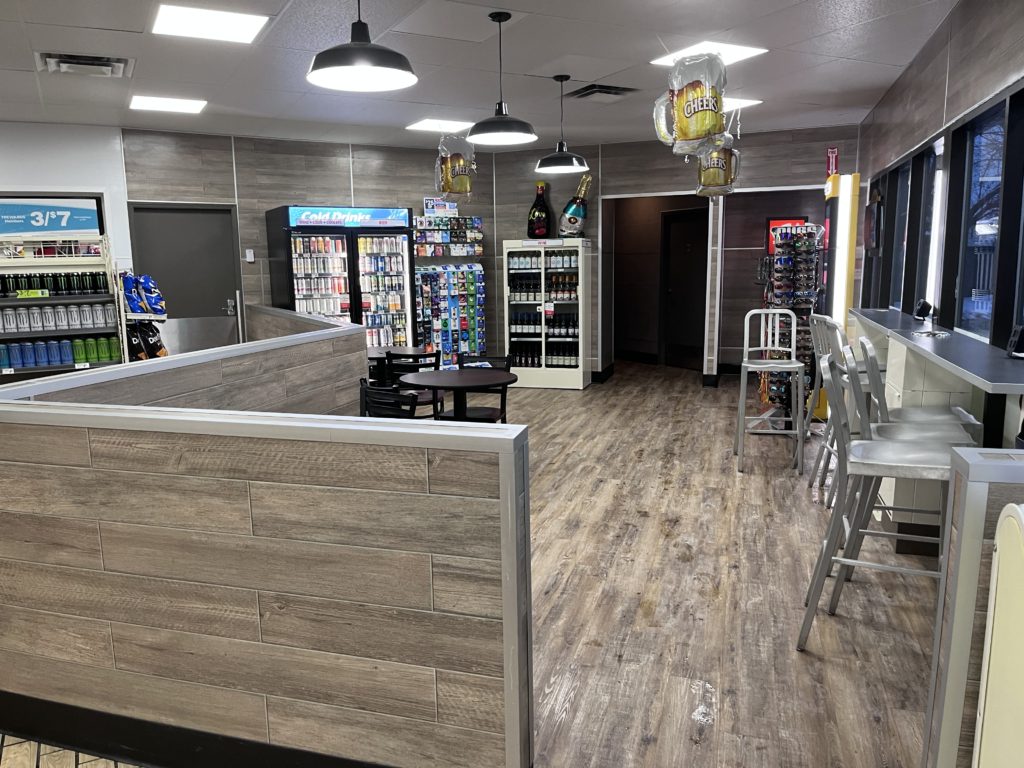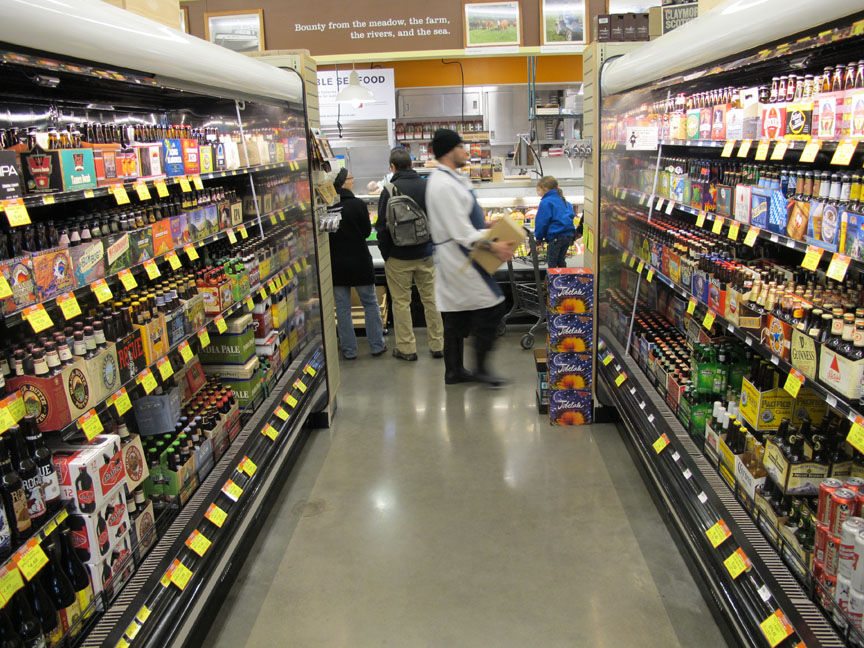News reports came out a few days ago indicating that the Alberta government has quietly established a committee of UCP MLAs to examine the prospects of allowing beer, wine and RTDs to be sold in grocery and convenience stores. The committee is a response to a decision last December by the Ontario government to roll out full implementation of grocery and convenience store retail by 2026.
No decisions have been made and apparently the committee was tasked to consult with industry groups – although no one is sure who they have actually spoken to (I don’t know of anyone, and it seems the liquor store industry group wasn’t on the invite list), but the government wants them to assess the viability of paralleling Ontario’s plans.
It is entirely possible all of this will quietly disappear. However, given this government’s penchant for earthshaking decisions recently, I would not count this out as a possibility yet. So I thought I would offer a few thoughts on what it might mean and whether this is a good idea or not. I did my CBC Radioactive column on it last week (you can listen to it here), and thought I might offer up a more extended look here.
First a quick recap. Alberta privatized liquor retail in the mid-1990s and only Saskatchewan has followed them down that path. I have discussed my views on the system many times (including here and here). What is important at this point is to recognize how unique it is in the country. No other province has gone ahead with full retail privatization. There are currently approximately 2,400 liquor stores in the province, plus a few 7-11s who offer up a four-pack with your warmed up hot dog (read more here). A few large chains take up the plurality of the market share, but there are hundreds of small mom-and-pop shops around the province.
Ontario, as one example, has a hybrid system of government-owned LCBO stores, the private monopoly The Beer Store (owned by the big three brewers) and 450 grocery stores. Most provinces still anchor beer sales at liquor-only locations (either public or private). Quebec is the most famous exception, which has long sold beer and wine in depanneurs.
What would expanding retail to grocery and convenience stores look like? Alberta currently has about 1,600 grocery stores and 2,500 convenience stores, which means when fully implemented it would almost triple the number of retail locations. (I realize not all will opt to sell alcohol, but market pressures will soon force most to sign on.)

For consumers, the change would mean more convenience. More places to get beer. Likely more significant is that they could pick up a four-pack while buying the weekly groceries, buying some gas or picking up a late night chili dog. One less stop to make doing errands, one less check-out counter. of course, convenience is not the same as selection. The range of offerings at most grocery and convenience stores will not match better liquor stores. Experience elsewhere suggests it is mostly the macro brands and larger craft brewers that get shelf space in these locations.
For existing liquor stores, this would triple their competition. And against companies with much more capital and many, like Superstore and Sobey’s, with existing experience at liquor retail. For many smaller stores this could be fatal, and likely hundreds would close. How it plays out for existing stores depends a lot on whether new rules will allow liquor stores to sell snacks, cigarettes and other associated things. However, I suspect that is not how it will play out. Spirits will still be restricted to liquor-only premises and so existing stores would need to adapt to focusing on these higher mark-up but lower-volume products and offering some kind of value added to beer and wine consumers – such as wider selection, educated staff, etc.
The impact on the craft beer industry is likely mixed. For larger breweries with more of a provincial reach, it will likely mean more retail outlets carrying their product with at least the potential to reach more consumers. However, for smaller breweries, it seems most likely they will get shut out and actually lose ground as fewer people will buy beer from liquor stores, decreasing the number of eyes on their cans.
My calculation is that the marginal increases in consumer convenience (but not selection) is not balanced by the upheaval it would wreak on the industry. I am a fairly large critic of Alberta’s liquor retail system (e.g., private distribution monopoly, anyone?), but even I can see that it has been in operation for 30 years. Things are stable. Jobs (albeit mostly crappy jobs) have been created. Consumers understand how it works. Frankly, this seems like a solution in search of a problem. Has anyone really been complaining about lack of convenient access to beer in this province? I can’t help but think this is (another) example of the current government looking for things to break, just because they can.
Yes, this is capitalism (or the “free market” if you prefer). Businesses open, businesses close. We are asked in our economic system to take a rather dispassionate stance on these things. If it makes the market more efficient, then maybe the loss of hundreds of small liquor stores is worth it. That is the demand of progress. That is the theory some espouse, anyway.
But this isn’t really a “free” market. It hasn’t been since prohibition (and you could argue it wasn’t before either). Government regulation has been so thick in this industry for generations that Adam Smith can’t be seen on the horizon. When Alberta privatized liquor, they didn’t just throw it open to the market to determine what happens. Instead, they picked winners and losers – selling ALCB stores to cronies and limiting who could enter the industry. They built a private monopoly to distribute alcohol, for heaven’s sake! This has never been about the free market. And it would be irresponsible – and dishonest – to try to start now. This move would just be about the government hand-picking a whole new set of winners and losers.
Selling beer in grocery and convenience stores MIGHT make policy sense in other jurisdictions where current retail is restricted. But in Alberta that proverbial horse bolted the barn three decades ago. In Alberta, expanding retail just creates more chaos. Whether that is intentional, I will leave the reader to decide.



May 6, 2024 at 10:07 AM
In Ontario beer at grocery stores is limited to Ontario craft brewers, with specific emphasis on local brands. If Alberta follows this model I’m supportive. Otherwise don’t mess with a system that by and large works.
May 6, 2024 at 10:50 AM
Mike,
As I understand it in Ontario, it is not craft beer only. They require retailers to offer a minimum percentage of shelf space to Ontario-based craft producers. And those tend to be the larger-sized breweries with provincial jurisdiction. As far as I know there is no requirement to stock local breweries.